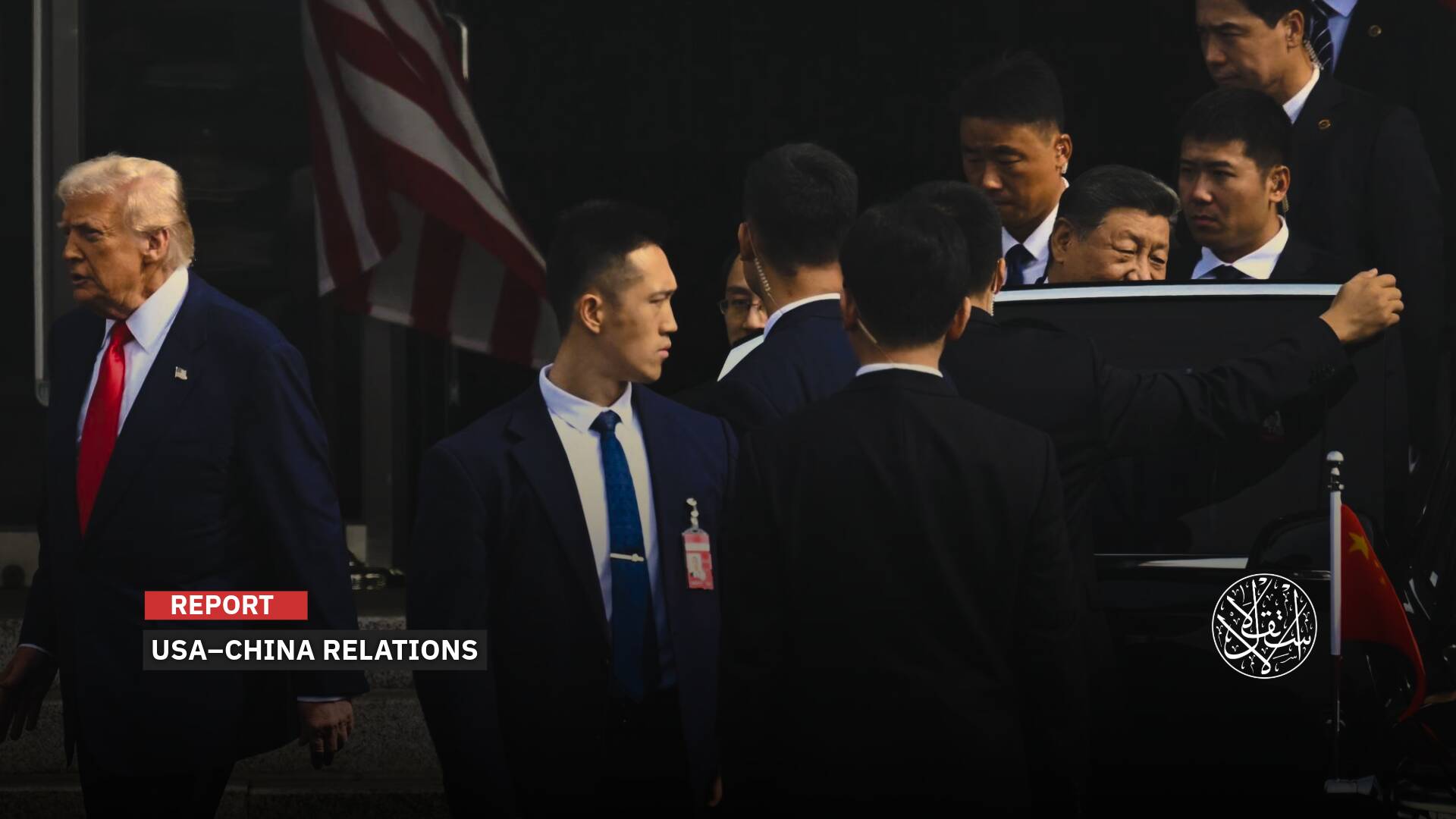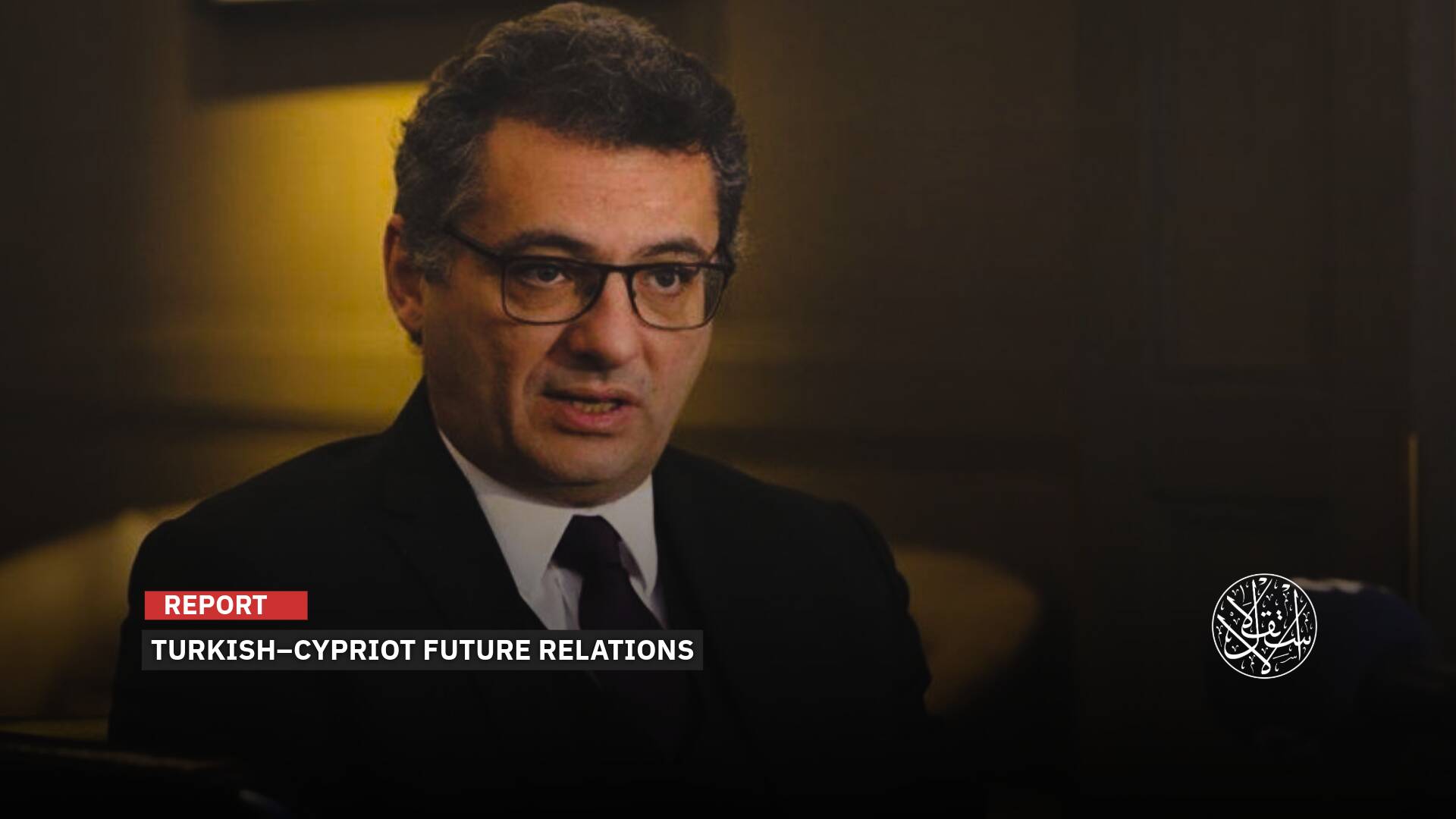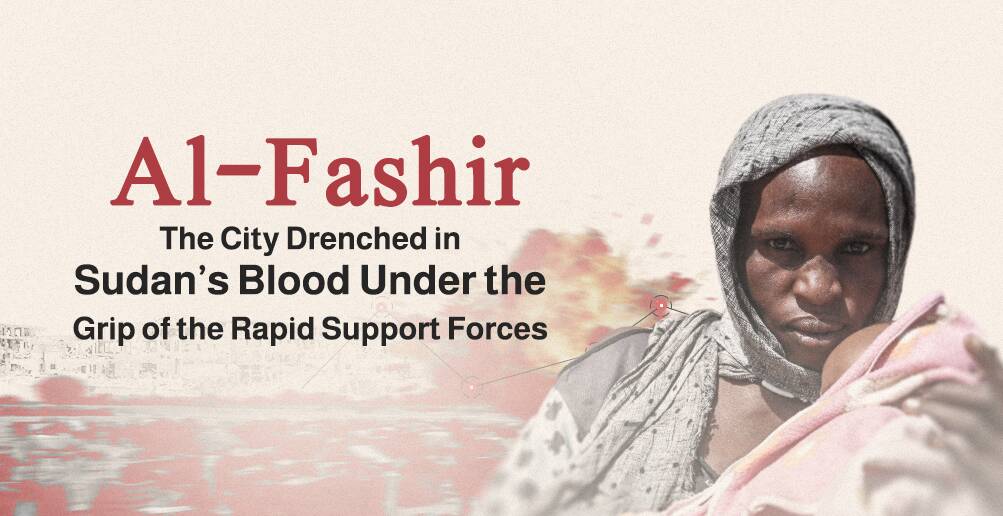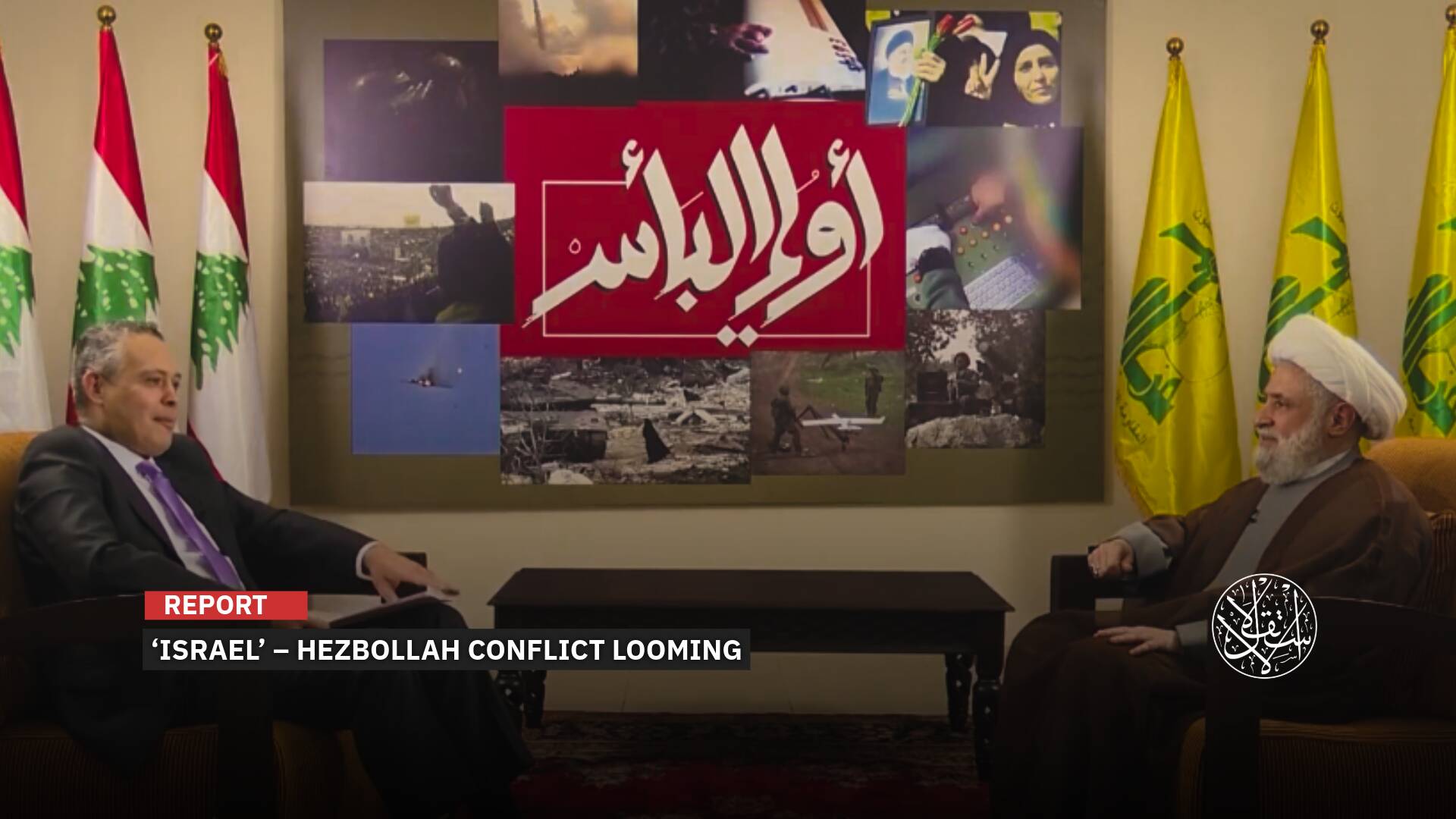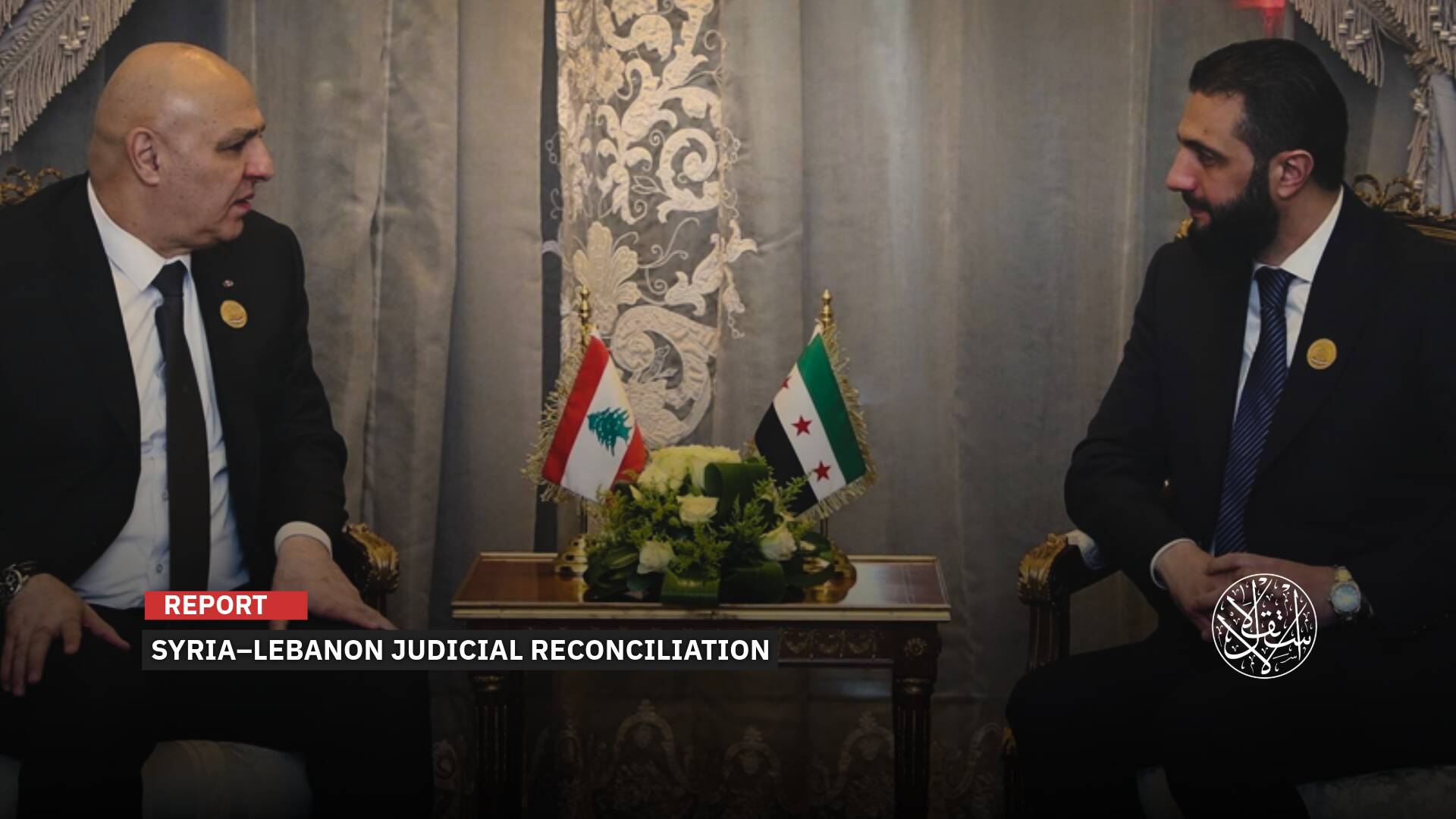Why Is Germany Deepening Ties with Syria’s New State?

“Syria stands to gain from Germany's renowned vocational education system at this crucial stage.”
Germany is deepening ties with Syria’s new leadership, aiming to support the transition and aid reconstruction for lasting stability.
On March 20, 2025, German Foreign Minister Annalena Baerbock arrived in Damascus for talks with Syrian President Ahmed al-Sharaa and Foreign Minister Asaad al-Shaibani.
This marks Baerbock’s second visit since Bashar al-Assad’s ouster on December 8, 2024. Her first trip, in early January 2025, was alongside French counterpart Jean-Noel Barrot.
Baerbock cautioned that Syria’s situation remained volatile, highlighting the threat of internal and external forces seeking to derail the political process. She made it clear that European nations would not support any resurgence of radical Islamist groups.

Supporting this Period
Germany's Foreign Minister highlighted the negative impact of foreign interference, stating it only brought war and chaos to Syria. She emphasized the country's urgent need for essentials, particularly energy infrastructure, and Germany's willingness to support reconstruction, including energy plant upgrades.
Just days before her arrival in Damascus, Germany pledged an additional €300 million in aid to Syrians through the UN and selected organizations, with over half earmarked directly for the Syrian people, excluding the transitional government. This funding will address food, healthcare, emergency shelters, and protection for the most vulnerable, including refugees and host communities in neighboring countries.
Baerbock's visit also marked a political shift, signaling Germany’s recognition of Syria’s new government, as she reopened the German embassy in Damascus, closed since 2012. She stated that this step reflects Berlin's strong interest in Syria's stability.
The embassy will operate with a small political team due to security concerns, while consular services will remain based in Beirut. Baerbock stressed that private investments in Syria's recovery will only come once a stable, functioning state is in place, free from violence, chaos, and forced displacement.
Germany's involvement is significant, given it hosts Europe's largest Syrian diaspora after taking in over a million refugees since 2011. As one of the first Western nations to engage with Syria's new leadership after Assad's fall, Germany continues to push for a comprehensive political process to secure Syria’s peaceful future.
Baerbock also addressed the situation of Syrian refugees, noting Germany’s efforts to facilitate voluntary returns, proposing initial visits to assess return options without losing refugee status, and working on a mechanism to support this.
With a diplomatic presence in Syria since early 2025, Germany is better positioned to offer support across various sectors, assist humanitarian organizations, and help ease sanctions. This visit underscores Germany’s commitment to backing Syria through its transition, as the country faces numerous security and economic challenges.

Political Role
Germany is actively assisting Syria in revitalizing its electricity sector, a critical step for the population's daily life. Notably, work is underway to restart the Deir Ali power station in rural Damascus, with support from German company Siemens. This issue has been a key focus in discussions between German federal representatives and Syria’s new government.
The Deir Ali plant, Syria's largest and most modern power station, plays a crucial role in supplying energy to all provinces, with a capacity ranging from 1400 to 1500 megawatts, covering 40% of the country's electrical grid. Addressing Syria’s electricity deficit and improving infrastructure has become a priority for the new government, which has already succeeded in extending power supply hours in several cities since March 19, 2025. This progress is partly due to Qatar’s delivery of natural gas supplies to Syria via Jordan.
Germany's openness to Damascus at this “sensitive time” signals its interest in supporting the country’s recovery, according to observers.
“Germany, which experienced widespread destruction under the Nazi regime, has valuable expertise in reconstruction and transformation from a devastated nation to one of the world's top growing economies,” Syrian political analyst Ahmad al-Hawas told Al-Estiklal.
“Germany’s experience with post-WWII division and eventual reunification also parallels Syria’s current challenges.”
“Germany, which severed diplomatic ties with Assad’s regime and supported sanctions since May 2011, has maintained contact with the Syrian opposition and provided aid to displaced people,” he added.
“This commitment deepened as Germany became a key destination for Syrian refugees, offering social benefits and facilitating their integration into the workforce.”
“As Europe's wealthiest nation and the world's fourth-largest economy, Germany’s sizable Syrian refugee population—including 70,000 naturalized citizens—makes it a key player in Syria’s reconstruction. He also noted that Germany aims to build strong political ties with Syria, given its strategic location,” according to al-Hawas.
“Germany’s swift reopening of its embassy in Damascus sends a clear message. First, it paves the way for other EU nations to follow suit in reengaging with Syria, second, it signals Europe’s desire to assert its own foreign policy, stepping away from U.S. influence—especially after the strains of the Trump era.”

Sharing the Experience
On the other hand, some believe that the new Syrian government is seeking to benefit from countries with similar experiences to Syria’s, such as Germany.
Abdulrahman al-Haj, the director of the Syrian Memory Foundation, stated that “Germany has the best vocational education system in Europe, and perhaps in the world, in addition to its vast expertise in infrastructure and many other sectors.”
“Germany, through two visits by its foreign minister in just two months, has demonstrated exceptional interest and enthusiasm in supporting Syria's new government and political transition, seeing the situation as a historic opportunity that must not be missed,” he posted on Facebook.
“Germany has several interests in the developments in Syria, which align with Syrian priorities. Given that strengthening the education system is crucial for development and recovery, leveraging Berlin's expertise in this area should be a key focus in the bilateral relationship during the transitional phase.”
As of 2024, Syrians make up about 0.6% of the total workforce in Germany. Many Syrian refugees work in sectors experiencing skilled labor shortages in Germany. For instance, 62% of them are employed in areas related to the system, such as healthcare, transportation, logistics, or food production.
According to an analysis published by the Institute for Employment Research (IAB) of the Federal Employment Agency in December 2024, the number of Syrians working in Germany reached approximately 287,000 in September 2024, with 82% contributing to social insurance. However, their employment rate of 42% is lower than the 61% employment rate achieved by Syrian refugees after seven years of arrival.
Despite this, the potential return of Syrian refugees to their homeland could negatively impact the German economy and widen the skills gap.
Around 6,000 Syrian doctors work in Germany, and clinics employing approximately 5,000 of them have warned that their return to Syria would impact healthcare in the country, particularly in rural areas.




